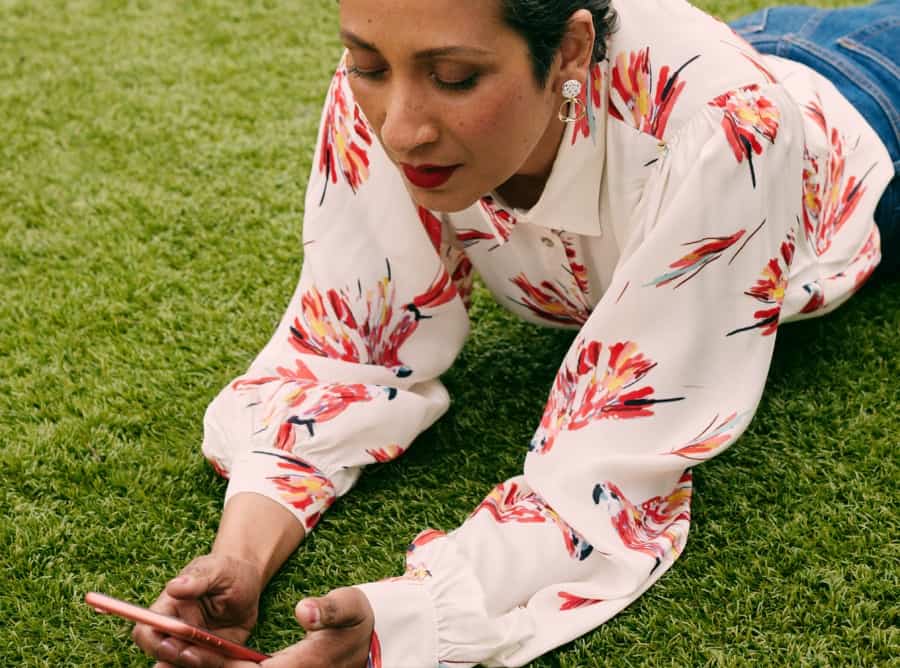Age-positive, fashion-focused images to improve how the media portrays ageing
The Centre for Ageing Better launches the first-ever fashion-focused shoot for its age-positive image library as survey findings revealed that over half of UK women over 18 feel the way they are portrayed in the media makes them feel ‘bad about ageing’.
Produced with award-winning global campaign and community, Ageism Is Never In Style by The Bias Cut, these vibrant and dynamic images of six women with limited to no experience in the industry are the latest addition to Ageing Better’s image library which charities can use for free for a wide range of uses.
Jacynth Bassett, Founder of Ageism Is Never In Style & The Bias Cut, said: “Representation matters. It influences how we see ourselves, and how others see us. It boosts self-worth, self-esteem and creates a sense of value and validation within society.
“We’re delighted to be partnering with Centre for Ageing Better to disrupt and improve the representation of women over 50. Ageing is a privilege, not a punishment, and we’re on a mission to ensure that’s the message women – and society – begins to internalise.”
More than 250 women, from as far afield as New Zealand, expressed an interest in participating in the campaign, highlighting the real desire among older women to see more positive, realistic and diverse images of themselves reflected back in media, advertising and society.
The accompanying online survey for the shoot revealed that almost two in three women cease to feel represented in the media from the age of 46.
The survey also reveals that as women grow older, the dissatisfaction level with how they are depicted continues to climb, with 82 percent of women in their 50s saying they are represented ‘poorly’ alongside 89 percent of over 60’s.
The biggest mistakes made by brands and advertisers included showing mid-life women in their 50s ‘wearing old-fashioned clothing’ or ‘kooky & struggling with menopause’, according to the survey results.
Women in their 60s in the survey were concerned about being painted as ‘lonely and lacking in relationships’, while those in their 70s and 80s hated been shown as ‘frail’ or ‘lonely’.
Dr Carole Easton OBE, Chief Executive at the Centre for Ageing Better, said: “The survey results show that the photos used in the media aren’t representing women in a positive and realistic way, and often resort to inaccurate and limited stereotypes such as old-fashioned clothing, lack of relationships, and frailty.
“It reflects a frustration among older women – when they are represented in the media at all – of being pigeonholed as stereotypes, such as frail and lonely individuals to be pitied or kooky eccentrics that are unrelatable to many. Our survey also confirms that because of this, women are reduced to feeling negative about ageing.
“We hope that charities and other organisations will enjoy these new image library photos and find them a useful age-friendly resource to push back against the ageist stereotypes which are clearly unappealing to women. We hope our shoot provides a blueprint to how to do things differently, championing age-inclusivity and redressing the balance of how women over 50 are depicted.
“The image library is our response to the ageism that is still so pervasive in society and forms part of our Age-friendly Movement trying to change how people think, feel and act about ageing. The subjects of our shoot all have little to no modelling experience but are great examples to highlight that getting older and being glamorous, professional and confident aren’t mutually exclusive.”
One in eight women in the survey highlighted that brands and media outlets use models younger than the women the product is aimed at, exacerbating their negative feelings around ageing.
Adverts and media outlets focussing on work and employment were deemed the worst ageist offenders, with three quarters of older women saying they were shown in a negative light.
Two thirds agreed finance and fashion articles and adverts portrayed them poorly, alongside 61 percent in beauty, plus news and in political context.
Jacynth continued: “With our population ageing, retirement age increasing, and over 50s being encouraged back into the workforce, it’s vital that women over 50 feel seen and valued. And yet, as our survey shows, not only do women still not feel truly represented as they age, but they are internalising negative attitudes around ageing as a result. This is detrimental to themselves, and to society at large.”
The images from the new collection are available to download for free from the Centre for Ageing Better’s image library and platform Unsplash.com.
The image collection launch will be supported by an empowering social media campaign where women will be encouraged to show how they express themselves and “look their age” regardless of society’s ageist expectations and unhealthy stereotypes.
Ageism Is Never In Style & The Bias Cut founder Jacynth Bassett was interviewed by Centre for Ageing Better’s Director of Communications and Policy Emma Twyning for the second instalment of Ageing Better’s discussion series Challenging Ageism. The interview can be seen on Ageing Better’s Twitter, Facebook and YouTube channel.


